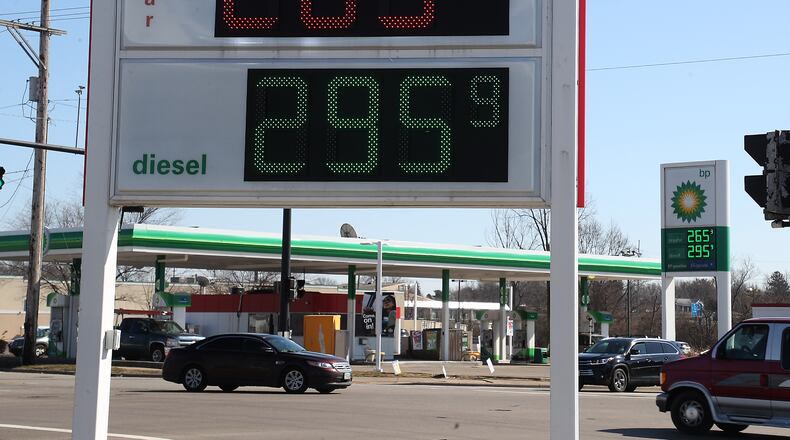Local state Rep. Willis Blackshear Jr., D-Dayton, announced Friday he will co-sponsor House Bill 144, which would allow county auditors to authorize fuel quality testing programs in their home counties.
“Without regular testing, there is no way of knowing if the fuel was tainted by water sediment, or other contaminants that can cause serious damage to their car,” Blackshear said. “I believe Ohioans have a right to know what they’re putting into their cars.”
It is not clear how much of an issue bad gasoline is in Ohio, but there have been multiple incidents where tainted gas was pumped into cars in southwestern Ohio in the last two years.
In February 2019, drivers in Middletown unknowingly pumped water-tainted fuel into their tanks. In January 2020, four Dayton-area Speedway gas stations received unleaded gas tainted with diesel. Cars landed in repair shops in both instances.
The bill has gained bipartisan support. The lead sponsors of the bill are all from southwest Ohio and include: State Rep. Brigid Kelly (D-Cincinnati); Rep. Thomas Hall (R-Madison Twp.); Sen. George Lang (R-West Chester) and Sen. Cecil Thomas (D-Cincinnati).
Senate Bill 71 has also been introduced in the Ohio Senate on the same topic. State senators George Lang (R-West Chester) and Cecil Thomas (D-Cincinnati) are the primary sponsors.
Blackshear was joined by Montgomery County Auditor Karl Keith at a press conference announcing his support on Friday. Keith has supported such a program since 2000. Blackshear formerly worked for Keith as community engagement specialist for the Montgomery County Auditor’s Office.
Keith said the recent incidents seem to have renewed interest in the problem.
“We’re very excited about the opportunity that we might actually move this legislation through the state house this year,” Keith said. “It’s important to us.”
Blackshear said the bill would allow county auditor’s existing weights and measures inspectors to do the inspections..
Keith said because the inspectors are employed by the county already, the cost of such a new program would be minimal, maybe around $20,000 for equipment.
“This would be an opportunity to make sure that it’s gas that has not been tainted with water, or that octane levels are correct,” Keith said. “So these are simple quality tests that can be done in the field by current staffing.”
However, he acknowledged that the cost of equipment could be prohibitive for counties with small budgets. He and Blackshear support the legislation being voluntary and allowing counties to share equipment.
About the Author



